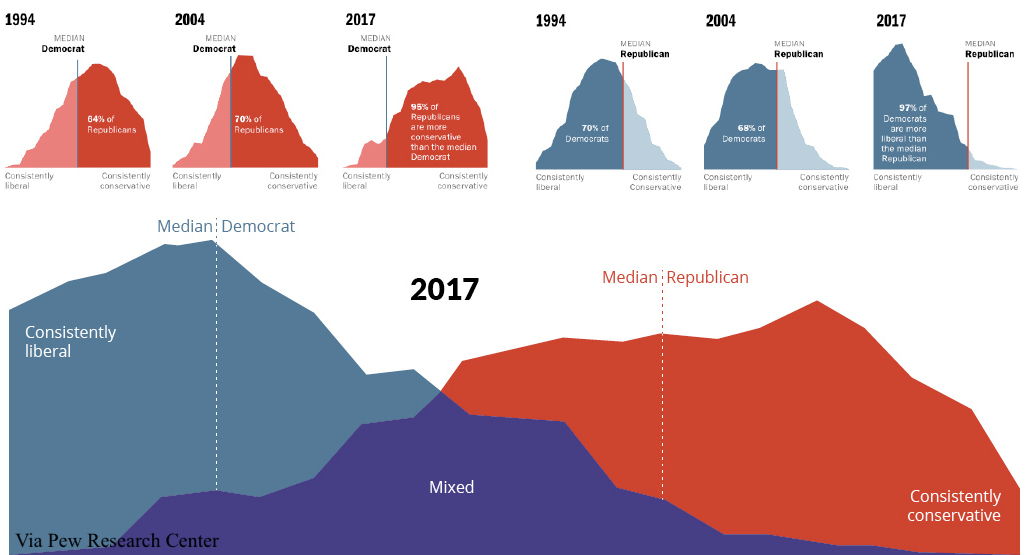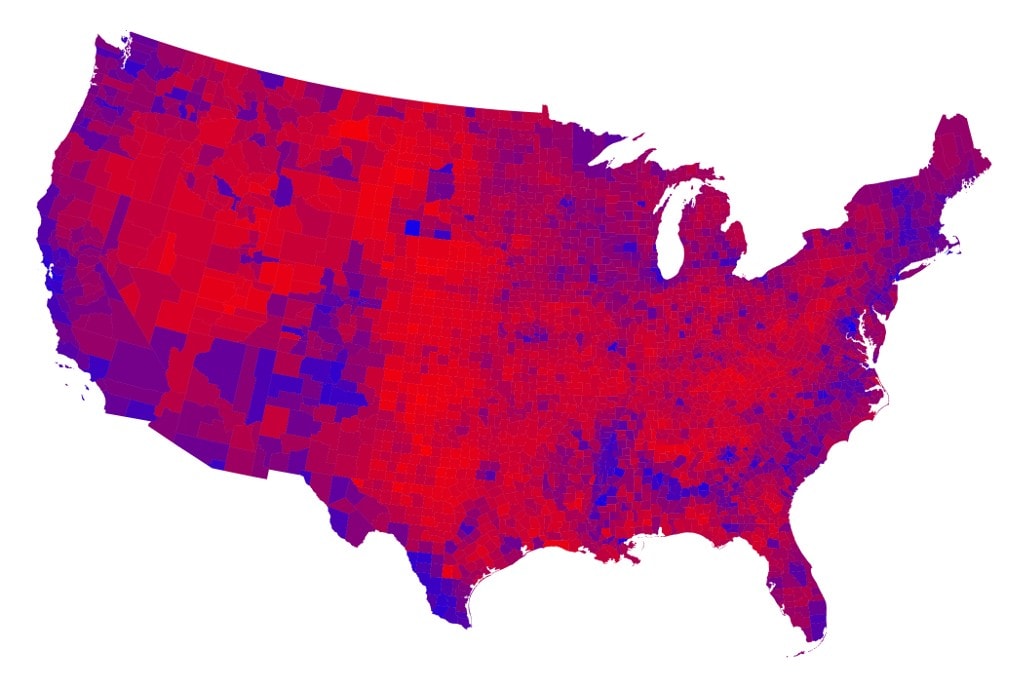This extended republic, mess that it is, is still the last best hope for freedom on this earth.
A House Dividing?

Bringing what is said in private into the open.
We do not publish this feature lightly. Nor do we intend to take a firm editorial stance in the debate. But it is past time to bring the discussion Americans are now having in private into public light. The longer it stays underground and forbidden, the more we risk serious and sudden shocks to our political and cultural life together. Only by having this debate out in public can we hope to resolve the current crisis.
When we can’t agree as a people on the purpose of government, or even about what human nature is, the next logical question is: how can we stay together as citizens? What truths, in other words, do we still think self-evident? What is the basis of our shared citizenship? Where is the growing divide in America leading us, and what is the best path forward?
The best book on the topic has been written by our colleague Michael Anton, who explores these questions in The Stakes, which we encourage you to read. Examining the contemporary scene, we find those, like Geoffrey Vaughan, who acknowledge the deepening divide yet hold that the structure of American government stands. In “Madison Wins, Factions Lose,” he argues that “Madison has continued to outwit the ideologues and factionalists.” And, after all, even Democrats who support packing the Supreme Court and adding Puerto Rico as a state are operating within the Constitutional framework. Republicans now eye the Constitution’s requirement that state legislators ultimately choose their state’s electors to the Electoral College.
Yet one must also note that changes to the Constitution’s Electoral College and the apportionment of the U.S. Senate are being openly proposed by mainstream Democrats. Further, while the Constitution at least partially holds, the question is how long it can continue to keep a house divided together. In the midst of the growing divide in America, red counties are growing increasingly eager to leave blue states and reconstitute red ones even as blue states have been saber-rattling for four years about federalism and state prerogatives. This week, we present the visions of two pseudonymous authors pointing toward a national separation in the interest of preserving the union.
It is not only young radicals who are thinking though a potential balkanization and breakup of the nation. Many engaged citizens are talking about such things in private. It is particularly worth noting that many highly competent professionals throughout the country—notably those in finance and tech whose livelihoods are tied to judging reality as it is and not as they’d like it be—quietly believe that America is headed towards an even deeper divide. Many are silent readers of this website, and in private they often offer dark thoughts about the state of our financial system, Big Tech, and our political culture.
In “2020: A Retrospective from 2025,” Professor “Tom Trenchard” provides an account of what might happen if red counties began to act as a unified front against the blue cities that propelled Joe Biden’s vote count. He has followed up with a “Common-Sense Solution” that outlines his proposals for making such a thing reality. This is not merely a fantasy: red county repartition movements have been picking up steam, and Trenchard’s account identifies the real divide in American political life between rural and urban areas. In “Showdown or Surrender,” Michael Lind argues that no peace or reconciliation is possible in the face of such a divide.
“Rebecca” presents an extended argument for the depth of the divide, proposing that the only way to resolve it is a more radical form of federalism. This “proposal for a renewed America” is not an argument for secession, but a peaceful process whereby both sides are allowed some measure of self-governance, with an eye to reunification. As the author says, “The two Americas avow their disagreements. The Separation respects reality and seeks peaceful co-existence.”
Such thoughts are no longer wild-eyed fantasy. Both pseudonymous essays vaguely echo Angelo Codevilla’s thoughts at the end of Revolution 2020 and “Our Revolution’s Logic.” These voices now represent those of many thoughtful Americans concerned about the fate of the nation. We welcome more to the discussion.
The American Mind presents a range of perspectives. Views are writers’ own and do not necessarily represent those of The Claremont Institute.
The American Mind is a publication of the Claremont Institute, a non-profit 501(c)(3) organization, dedicated to restoring the principles of the American Founding to their rightful, preeminent authority in our national life. Interested in supporting our work? Gifts to the Claremont Institute are tax-deductible.
A proposal for a renewed America.
Donald Trump and the Altogether True and Amazing Origin of the United American Counties.



